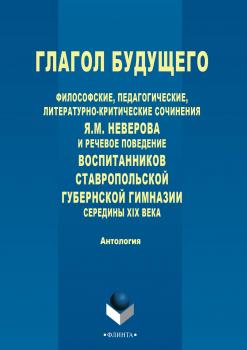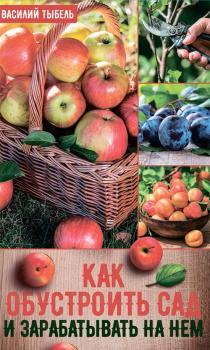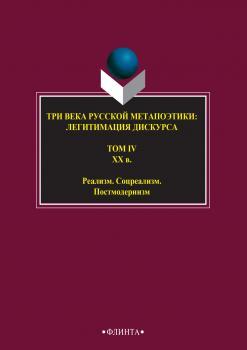MREADZ.COM - много разных книг на любой вкус
Скачивание или чтение онлайн электронных книг.Черчилль. Великие личности в истории
Один из самых влиятельных политиков мировой истории. Тот, кого по праву считают величайшим лидером военного времени ХХ века. Офицер британской армии, историк, оратор, художник и писатель. Единственный премьер-министр Великобритании, удостоенный Нобелевской премии. В 2002 году британцы массово отдали ему свои голоса за первое место в рейтинге «100 величайших британцев». Его жизнь не только вызывает интерес. Она не оставляет равнодушным. Уинстон Леонард Спенсер-Черчилль – истинное дитя своей эпохи и олицетворение британского характера. В его биографии, как в капле воды, без преувеличения отражается история мира с последней четверти позапрошлого века и до начала последней трети века минувшего. На основе британских источников, биографии и мемуаров – захватывающая история в фактах. Анализ и критика политики, оценки современников и потомков – все, что вы хотели знать о Черчилле-политике и Черчилле-человеке!
Миссис Дэллоуэй. Орландо
Жизнь Клариссы Дэллоуэй – яркая и роскошная. Она аристократка, у которой есть всё. И судьба вновь сводит Клариссу с мужчиной, который любил ее так, как больше не полюбит никто. Юная Кларисса отказала ему. Для зрелой – это последний шанс остаться или уйти навсегда… («Миссис Дэллоуэй») В шестнадцать Орландо стал фаворитом самой Елизаветы I. На смертном одре она попросила его оставаться вечно молодым. С тех пор прошла сотня не властных над Орландо лет. Он влюблялся и разочаровывался, обретал и терял, менял города и эпохи. А однажды утром проснулся в теле… юной девушки. Без права на прошлое. С бесконечным будущим впереди. Вечная молодость – дар или проклятие Орландо? («Орландо»)
Как обустроить сад и зарабатывать на нем
«Сколько ни сажаю, почему-то не принимается, наверное, у меня рука такая – тяжелая». «Посадил, а оно сидит, зараза, на месте, как вкопанное. И сколько ни поливал, все зря, хотя бы на сантиметр подросло!» «Пять раз сажал грушу, а плодоносят только терпкие кислые яблоки». Знакомо? Тогда вы держите в руках правильную книгу! На ее страницах опытный садовод Василий Тыбель расскажет: • как избежать подобных неприятностей; • как спланировать сад; • как выбрать саженец; • как вырастить и привить любимый сорт; • как посадить его в самом подходящем месте; • как провести формирование и обрезку; • как защитить растения от болезней и вредителей без применения химии. Но самое главное – вы научитесь зарабатывать на вашем участке, получая максимальную прибыль. Начать собственное дело, обустроить сад и продавать продукцию на крупных рынках – это реально. И пусть ваш сад работает на вас!
Гармония поэтического текста
В монографии освещаются актуальные проблемы лингвистического анализа поэтического текста с использованием феноменологического метода, стратегии деконструкции, а также общенаучных принципов симметрии, относительности, дополнительности. Основное внимание уделяется гармонии как критерию совершенства текста. Определяются общие принципы гармонической организации – аналитизм и синтетика поэзии, рассматриваются координаты гармонической организации, языковая ткань, склад, фактура текста. Изучаются законы гармонии в поэтическом творчестве А.С. Пушкина, М.Ю. Лермонтова, А.А. Блока, поэтов-авангардистов. Для студентов филологических факультетов, учителей и всех, кто интересуется вопросами лингвистической поэтики художественного текста.
Украшения строптивой. От пяти пар сережек до международного бизнеса
Как превратить пять пар сережек в международный бизнес? Взять немного храбрости, помножить на хороший вкус и отчаянную работоспособность, сдобрить все это чисто женской интуицией, и вуаля! – перед вами интернациональный бренд украшений JerusalemBazar. Его создательница Таня Либерман прошла путь от тюменской девочки, которую не взяли ни в один глянцевый журнал, до хозяйки международной сети магазинов с командой в три десятка человек. В своей книге она рассказывает, как вопреки факапам партнеров, нападкам хейтеров и бурной личной жизни преуспеть по всем фронтам!
Филология. Школы и направления
В учебном пособии представлена отечественная филологическая парадигма, включающая труды М.В. Ломоносова, А.Х. Востокова, работы ученых мифологической, культурно-исторической, сравнитель но-исторической, психологической школ, отечественных фольклористов. Публикуются исследования Общества изучения поэтического языка (ОПОЯЗа), Мос ковского лингвистического кружка (МЛК), Тартуско-московской школы. Для студентов, бакалавров, магистрантов, а также аспирантов, обучающихся на филологическом факультете. Книга будет полезна широкому кругу читателей, интересующихся проблемами филологии, семиотики.
Три века русской метапоэтики: легитимация дискурса. Том IV. XX век. Реализм. Соцреализм. Постмодернизм
Антология «Три века русской метапоэтики: Легитимация дискурса» – первый опыт системного изучения метапоэтики (исследования поэтами собственного творчества). Метапоэтика – особая область знания, характеризующаяся энциклопедичностью, многожанровостью, взаимодополнительностью художественных и научных посылок, она дает уникальные по достоверности сведения о поэзии. В четвертом томе представлены метапоэтические произведения поэтов XX века (реализм, соцреализм, постмодернизм). Предназначается для специалистов, занимающихся исследованием поэзии, а также для читателей, интересующихся поэтическим творчеством.









